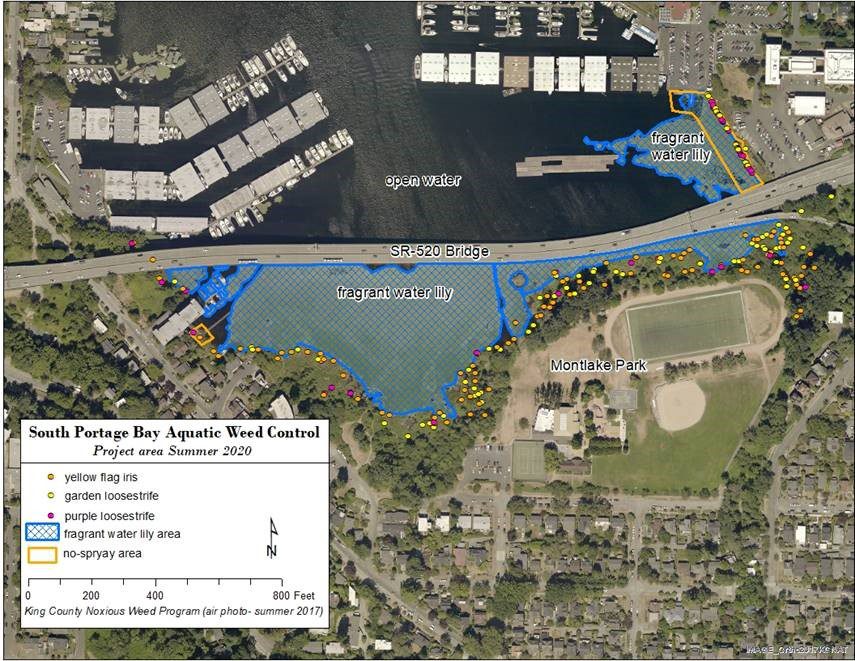
Seattle Parks and Recreation (SPR) and the King County Noxious Weed Program (KCNW) are in the second year of a two-year project addressing aquatic noxious weeds in South Portage Bay. Before the project began in 2019, the natural shoreline in the South Portage Bay area was highly impacted by floating and emergent/shoreline aquatic noxious weeds (See Project Area Map below). This project is achieving comprehensive control of the four most prevalent aquatic weeds: fragrant water lily, yellow flag iris, purple loosestrife, and garden loosestrife.
Between June and August 2020, up to two treatments with non-glyphosate aquatic herbicides, approved by Washington Department of Ecology, will occur in the water of South Portage Bay and along the shorelines within and adjacent to Montlake Park. The water lily treatment will be done in two phases, approximately three to six weeks apart, due to wash-over of the lily pads from the boat. The shoreline weeds will again be spot sprayed concurrent with each water lily treatment. Each treatment duration will be a minimum of one day and no more than two days. Treatment areas will be clearly marked and temporarily closed to public access while the work is being done.
Informational signs will be posted near the treatment locations prior to treating the plants and appropriate safety precautions will be taken to ensure that there will be no exposure to park visitors, pets, and wildlife.
This weed control will create a more natural, aesthetically appealing environment that nourishes native plant growth and aquatic species with the proper water temperature and oxygen level. Control of all these non-native aquatic species at Portage Bay will reduce the chance that these species will invade nearby lake areas.

Prior to 2019, fragrant water lily, a Class C noxious weed, covered almost 10 acres of south Portage Bay. Along the shoreline, purple loosestrife and garden loosestrife (both Class B noxious weeds) and yellow flag iris (a Class C noxious weed) occupied much of the waterfront habitat. These weeds are all state-listed noxious weeds, requiring control by landowners.
SPR and KCNW are working with several community partners to implement the project, and the Washington State Department of Ecology is funding this work.
For more information about this project or to submit comments please contact Patti Bakker at Patricia.Bakker@seattle.gov or Ben Peterson at ben.peterson@kingcounty.gov.